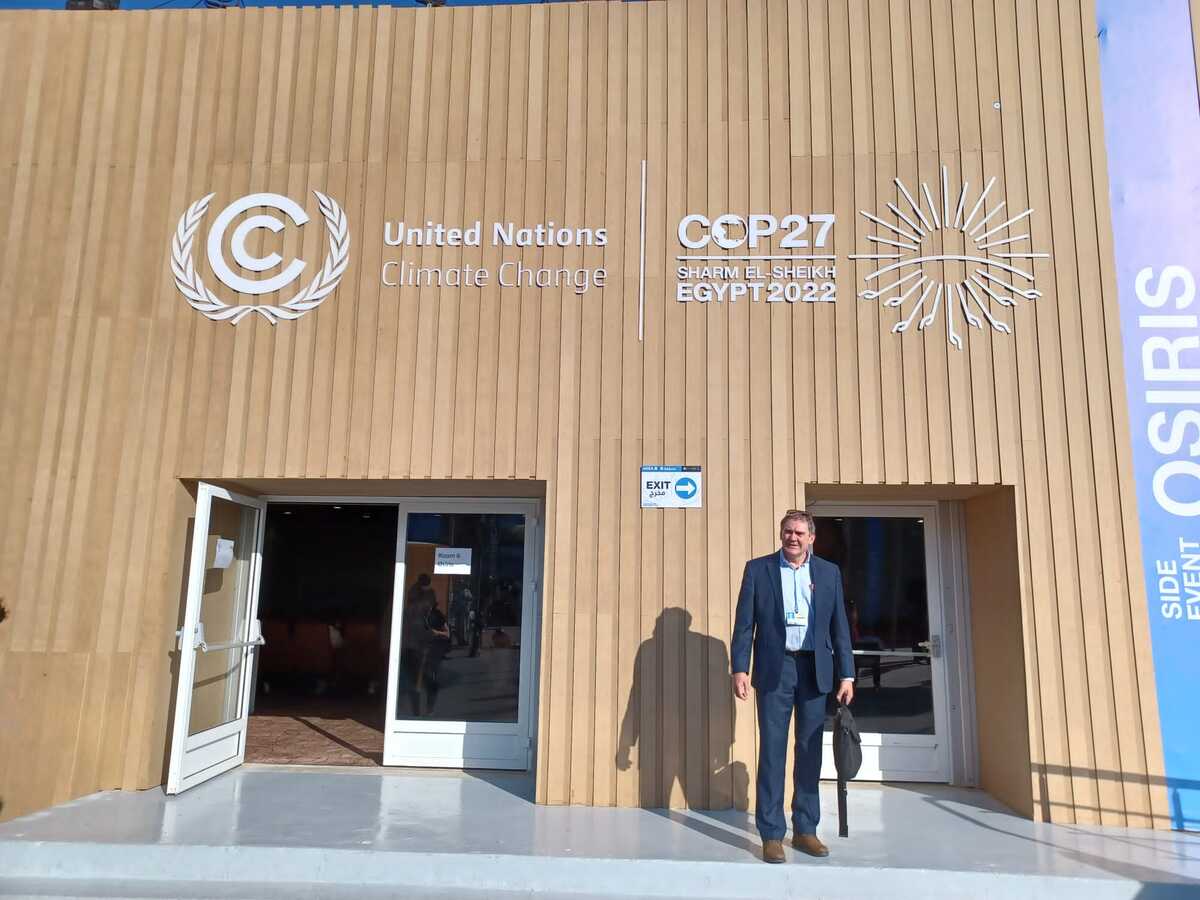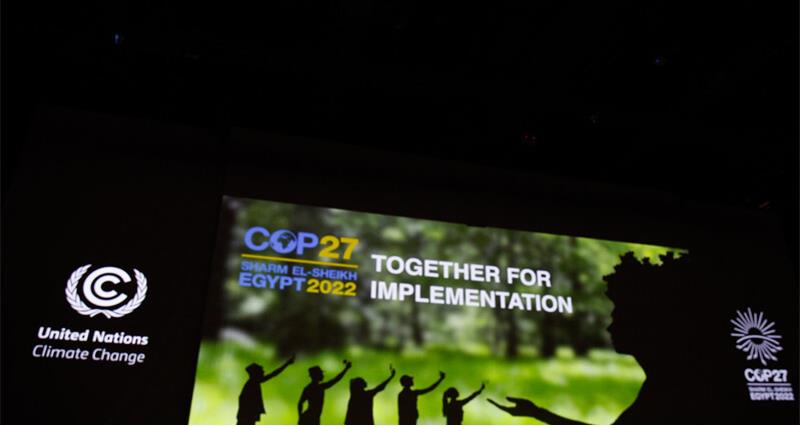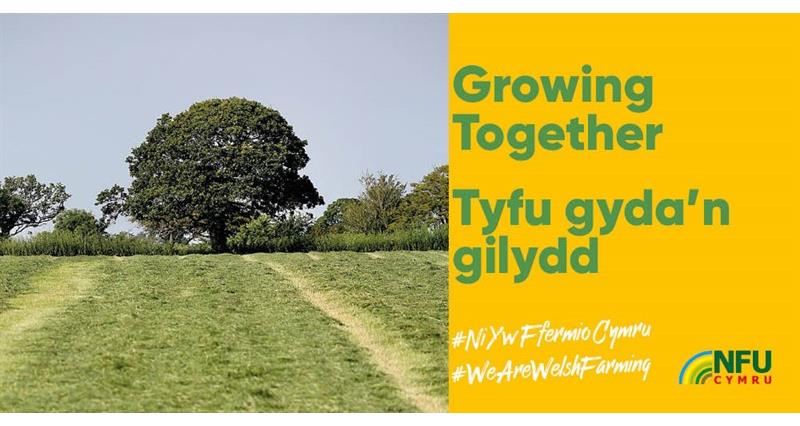The United Nations Framework Convention on Climate Change (UNFCCC) Conference of the Parties of (COP27) brings together Heads of State, ministers, negotiators and other interested parties to discuss action on climate change.
While farmers in the UK, and across the world, are exposed to the full-effects of climate change, with drought, fires and flooding all presenting a significant threat to global food security, the industry is also suitably positioned to offer solutions to the climate crisis.
Representing the four UK farming unions
During his time at the COP27 summit Aled Jones promoted the fact that farmers are already producing renewable energy and sustainable food, alongside capturing carbon on farm. Representing the four UK farming unions – NFU Cymru, NFU, NFU Scotland and Ulster Farmers’ Union – Aled Jones made the case that government investment in infrastructure and simplifying planning regulations will enable greater production of on-farm green energy and also support a sustainable supply of climate-friendly food.
Among a busy COP27 schedule, Aled Jones has participated in UNFCC Farmers’ Constituency meetings, gave a speech as part of a panel discussing the risks and opportunities in carbon markets for the food supply chain, as well as meeting farmer representatives and stakeholders from across the globe.
'A privilege'
"The number one principle, without any doubt, is that we should complement, not compromise, our ability to produce food. That must be heard loud and clear."
— NFU Cymru 🚜 (@NFUCymru) November 14, 2022
Our President @AledNfu reflects on #COP27 & the need for policy makers to speak with agriculture and not about agriculture pic.twitter.com/fFRga74DBG
NFU Cymru President Aled Jones said: “It has been a real privilege to represent Welsh and UK farmers at COP27. It's so important to be a part of these discussions, to engage with decision makers and get our industry's voice heard.
“Farmers in Wales and across the rest of the UK have shown leadership with the industry’s net zero 2040 ambitions and we are well placed to help tackle the challenges posed by climate change, both now and in the future. Farming has always had a deep-rooted connection with the environment and well-established hedgerows, woodlands, peatlands and grasslands on farms across the country have been capturing carbon for decades. Generations of farmers have taken great pride in using the natural tools at their disposal – significant rainfall and plentiful grass – to feed the nation healthy, nutritious and sustainable food while enhancing their local environment, boosting biodiversity and creating habitats for nature to thrive.
Reducing reliance on fossil fuels
“But we recognise that there is more we can do, and our industry holds huge potential to increase green energy production, such as solar, wind and hydro, that will not only build resilience in our farm businesses and reduce reliance on fossil fuels, but it will also help farmers continue to produce climate friendly food for people at home and abroad. With the right investment and improvements in infrastructure from government, I truly believe this industry can deliver even more.
“Alongside this ambition, we must also ensure that the transition to net zero is just and that the burden of decarbonisation does not fall unequally on farming and rural communities alone. All people and industries must play their part in addressing these important issues.
Part of the conversation
“It has been inspiring to listen to farming leaders from across the globe and it’s very clear that our industry is one that is united in its ambition to play its part in combatting climate change. Above all else I hope, as a result of our discussions, that policy makers will speak with our industry and not just about our industry. We want to be a part of these conversations going forward.”



